A unifrom magnetic field B exists in a cylindrical region of radius 1 cm as shown in figure. A uniform wire of length 16 cm and resistance 4.0Ω is bent into a square frame and is placed with one side along a diameters of the cylindrical region. If the magnetic field increaes at a constant rate of 1 T/s find the current induced in the frame.
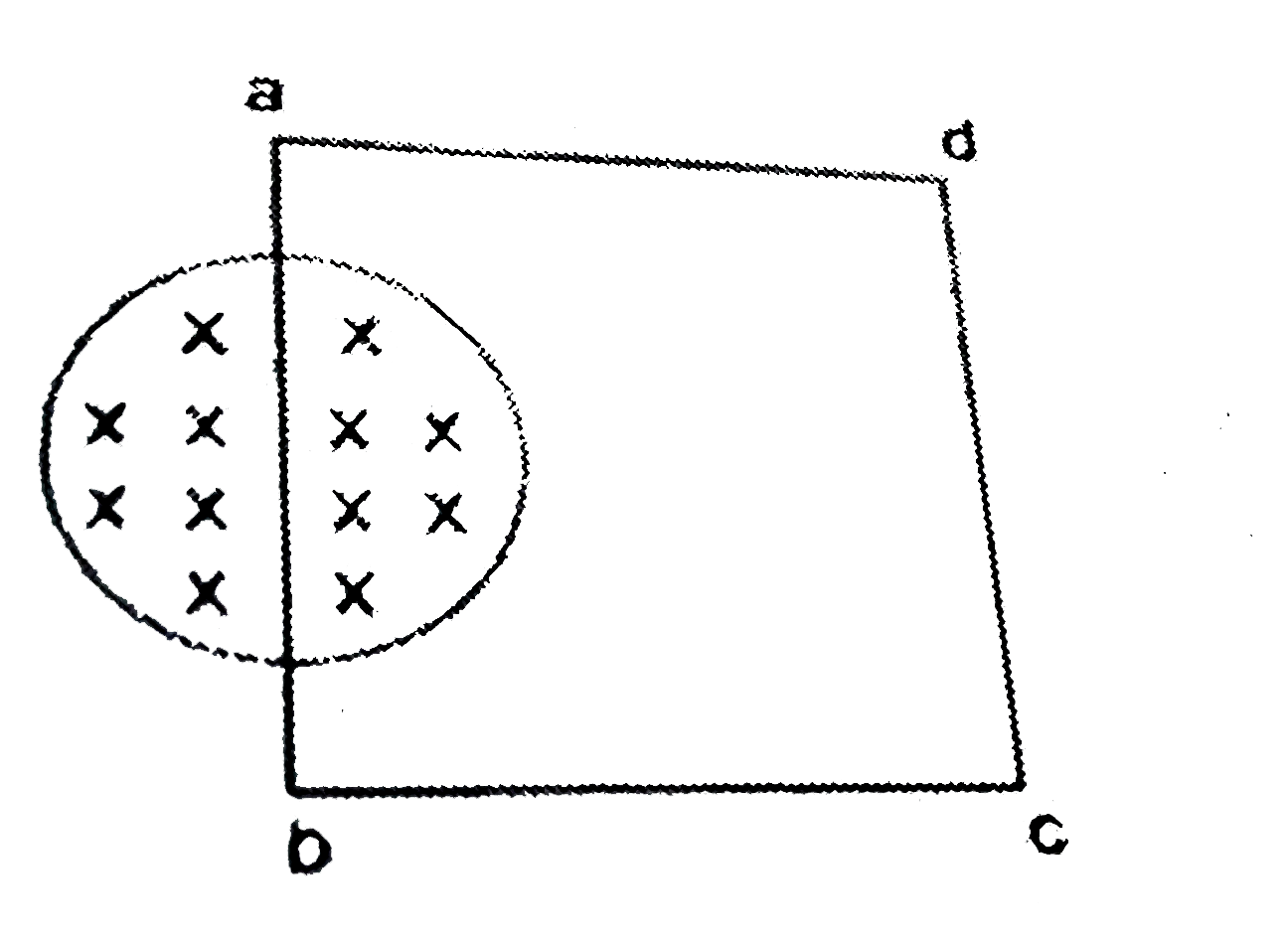
The correct Answer is:A, D
Step by step video, text & image solution for A unifrom magnetic field B exists in a cylindrical region of radius 1 cm as shown in figure. A uniform wire of length 16 cm and resistance 4.0Omega is bent into a square frame and is placed with one side along a diameters of the cylindrical region. If the magnetic field increaes at a constant rate of 1 T/s find the current induced in the frame. by Physics experts to help you in doubts & scoring excellent marks in Class 12 exams.
Updated on:21/07/2023Topper's Solved these Questions
- ELECTROMAGNETIC INDUCTIONBOOK - RESONANCECHAPTER - ELECTROMAGNETIC INDUCTIONEXERCISE - Exercis-1 PART 2
51 Videos
- ELECTROMAGNETIC INDUCTIONBOOK - RESONANCECHAPTER - ELECTROMAGNETIC INDUCTIONEXERCISE - Exercis-2 PART 1
15 Videos
- ELECTROMAGNETIC INDUCTIONBOOK - RESONANCECHAPTER - ELECTROMAGNETIC INDUCTIONEXERCISE - Problem
12 Videos
- ELECTRODYNAMICSBOOK - RESONANCECHAPTER - ELECTRODYNAMICSEXERCISE - Advanced level problems
31 Videos
- ELECTROSTATICSBOOK - RESONANCECHAPTER - ELECTROSTATICSEXERCISE - HLP
39 Videos
Similar Questions
A magnetic field of strength 1.0 T is produced by a strong electromagnet in a cylindrical region of radius 4.0 cm as shown in . A wire, carrying a current of 2.0 A, is placed perpendiuclar to and intersecting the axis of the cylindreical region. Find the magnitude of the force acting on the wire.
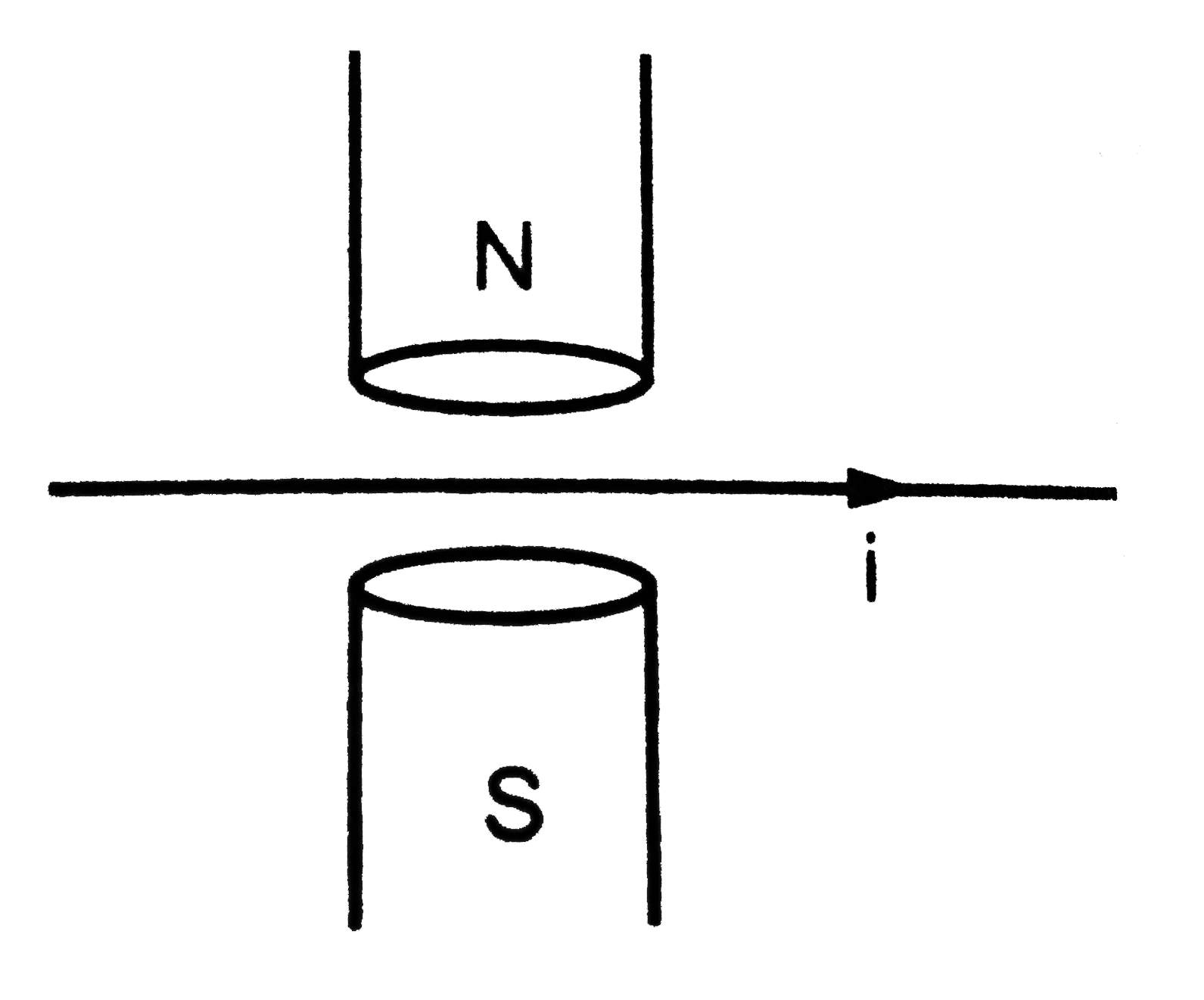
View SolutionA uniform magnetic field B exists in a direction perpendicular to the palne of a square frame made of copper wire. The wire has a total length of 40cm . The magnetic field changes with time at a steady rate (dB/dt)=0.02T/sec . Find the current induced in the frame. Resistance of wire =I0Ω
View Solution
Knowledge Check
A uniform magnetic field B exists in a cylindrical region of radius I0cm as shown in figure. A uniform wire or length 80cm and resistance 44.0Ω is bent into a square frame and is placed with one side along a diameter of the cylindrical region. if the magnetic field increases at a constant rate of 0.0I0T/sec , the current induced in the frame
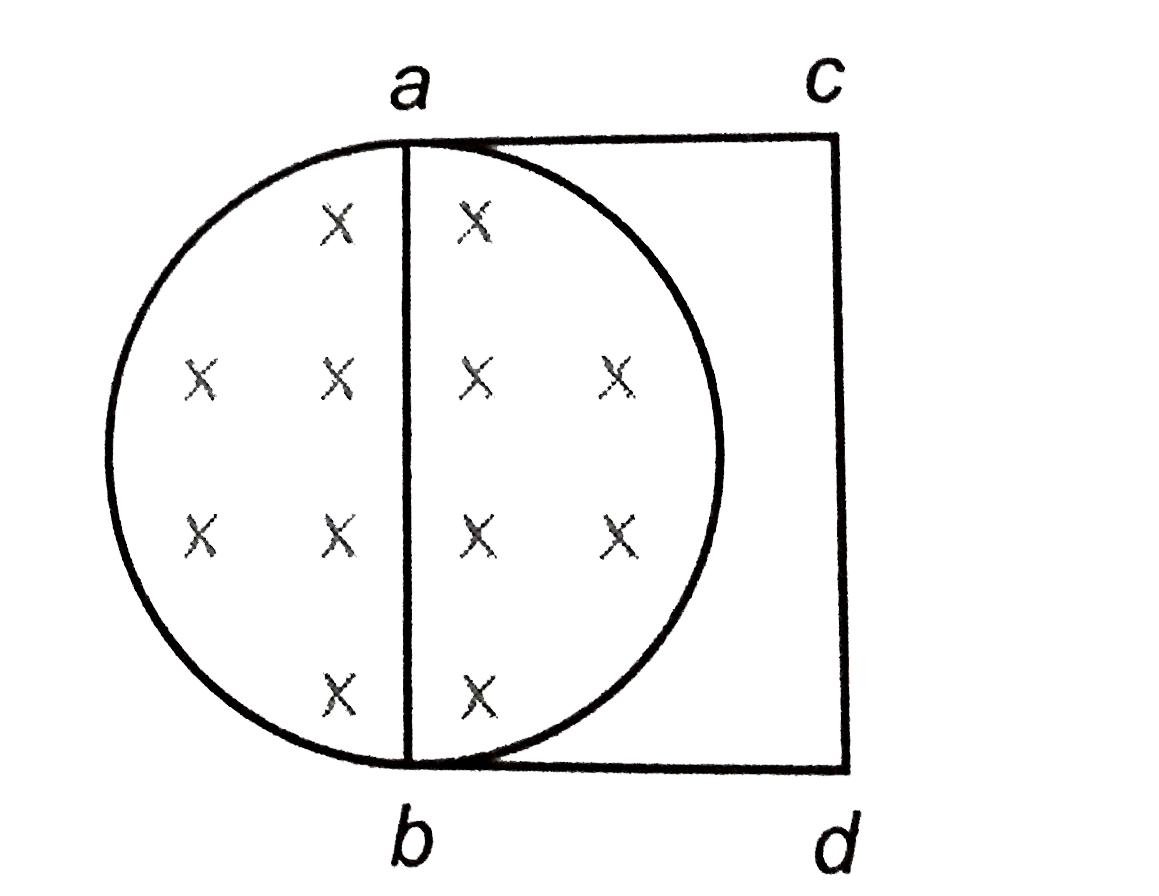 A3.9×10−5AB4.0×10−5AC4.1×10−5AD3.9×10−4A
A3.9×10−5AB4.0×10−5AC4.1×10−5AD3.9×10−4AA uniform but time varying magnetic field B=(2t3+24t)T is present in a cylindrical region of radius R=2.5 cm as shown in figure.
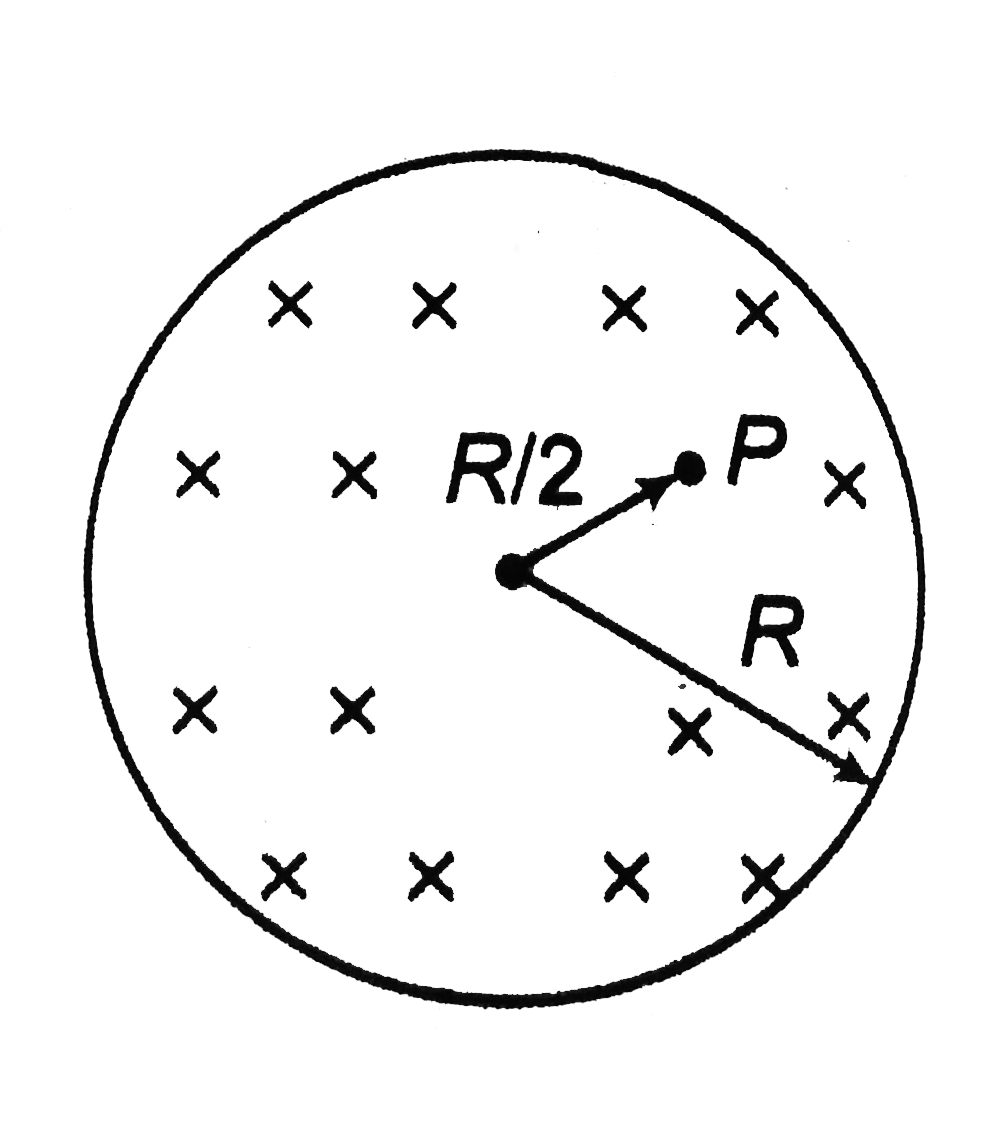
The force on an electron at P at t=2.0 s isA96×10−21NB48x10−21NC24×10−21NDzeroA conducting wire frame is placed in a magnetic field which is directed into the paper. The magnetic field is increasing at a constant rate. The direction of induced current in wire AB and CD are
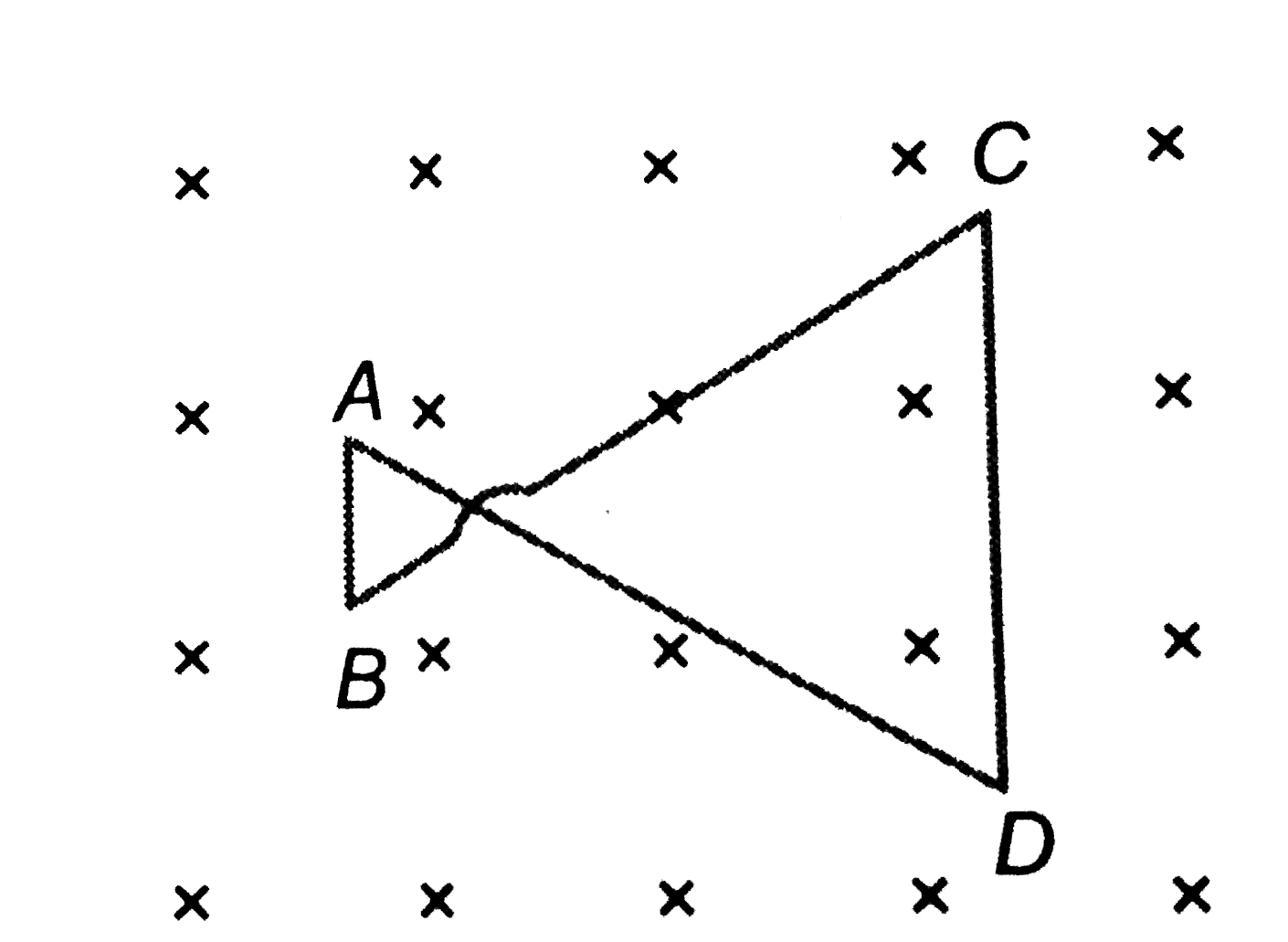 AB to A and D to CBA to B and C to DCA to B and D to CDB to A and C to D
AB to A and D to CBA to B and C to DCA to B and D to CDB to A and C to D
A uniform but time varying magnetic field B=(2t3+24t)T is present in a cylindrical region of radius R=2.5cm as shown in figure.
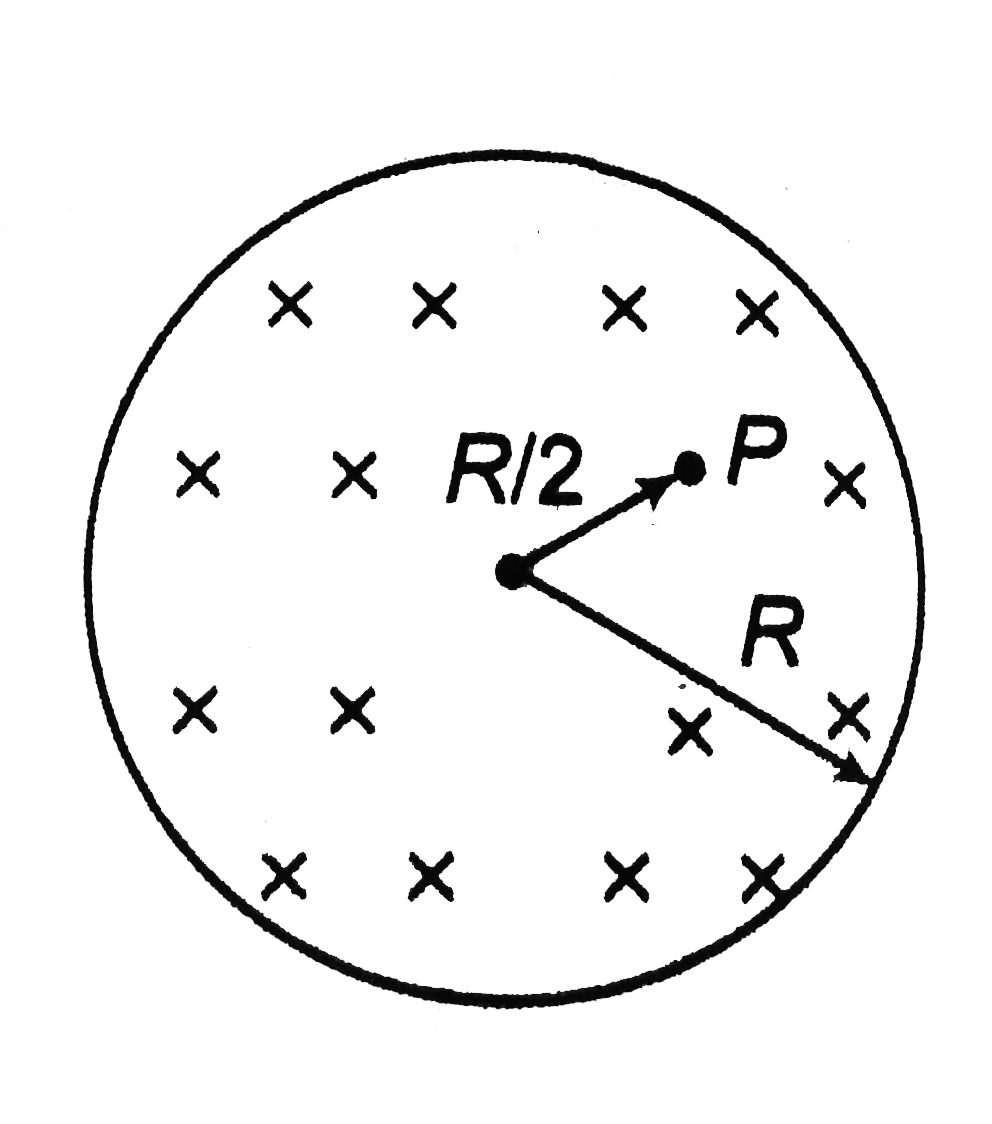
The variation of electric field at any instant as a function of distance measured from the centre of cylinder in first problem is
View SolutionA time varying magnetic field B=Kr3t is existing in a cylindrical region of radius 'R' as shown (where k is a constant). The induced electric field 'E' at rR2 is
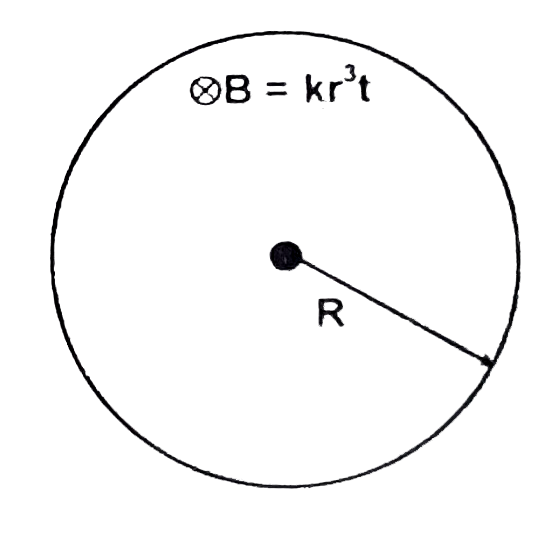
View SolutionA uniform but time varying magnetic field B=(2t3+24t)T is present in a cylindrical region of radius R=2.5cm as shown in figure.
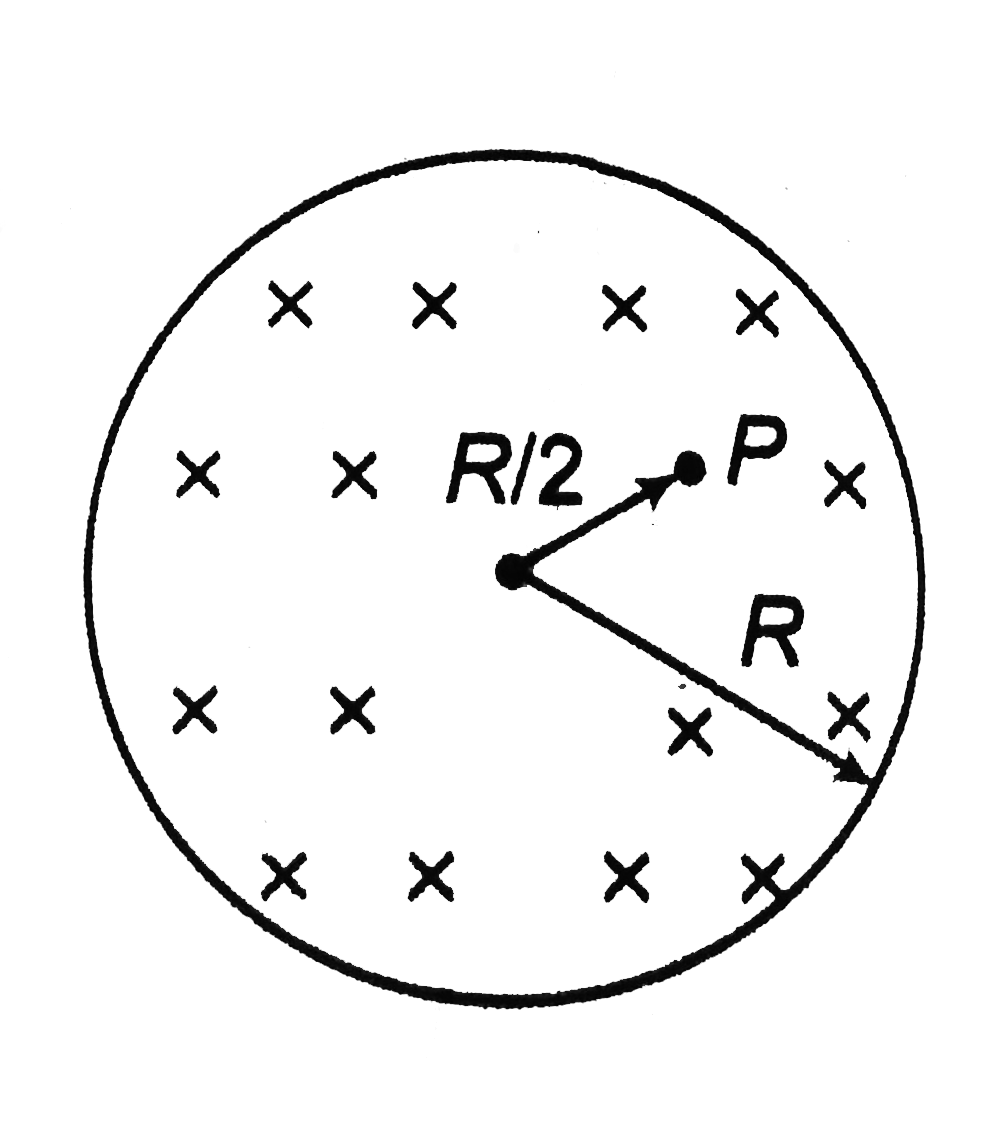
In the previous problem, the direction of circular electric lines at t=1s is
View SolutionA copper wire of length 40cm, diameter 2mm and resistivity 1.7×10−8Ωm forms a square frame. If a uniform magnetic field B exists in a direction perpendicular to the plane of square frame and it changes at a steady rate dBdt=0.02 T/s, then find the current induced in the frame.
View SolutionA copper wire of length 40 cm, diameter 2mm and resistivity 1.7×10−8Ωm form a square frame. If a uniform magnetic field B exists in a direction perpendicular to the plane of square frame and it changes at a steadyrate dBdt=0.02 T/s, then find the current induced in the frame.
View Solution
